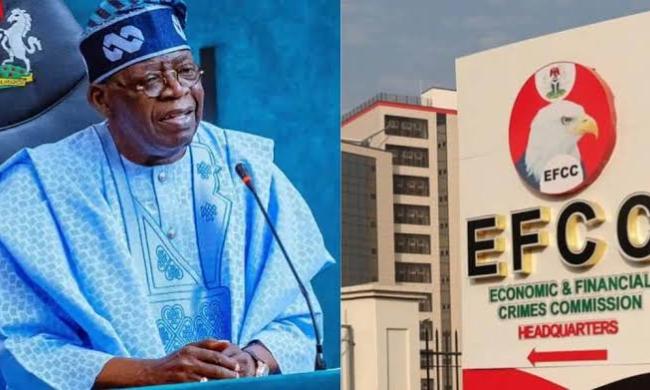
A review of the 2025 Fiscal Appropriation Act proposal has revealed that President Bola Tinubu’s administration plans to spend N1.8 billion to acquire and renovate properties forfeited by the Economic and Financial Crimes Commission (EFCC). These properties are earmarked for use as State House quarters in Abuja.
The budget also includes an allocation of N5.4 billion for the annual maintenance of the Presidential Villa in Abuja. According to page 7 of the 2025 budget document, the government has specifically set aside N1,830,783,061 for the acquisition, renovation, and rehabilitation of EFCC-forfeited properties.
Comparative Budget Analysis
Interestingly, the N1.8 billion allocated for EFCC properties exceeds the combined budget for critical sectors such as education and healthcare across the six geopolitical zones of Nigeria. For instance, only N805 million is allocated for constructing and providing educational facilities in these regions.
Additionally, the government plans to spend N410 million each on constructing hospitals/health centers and providing health equipment in the same zones. This disparity raises questions about the prioritization of resources, as the N1.8 billion allocation for EFCC properties is N205,783,061 higher than the total combined budget for these essential sectors.
Breakdown of Budget Allocations
Education: N805 million for constructing and equipping educational facilities in six geopolitical zones.
Healthcare: N410 million for building hospitals and health centers, and another N410 million for health equipment across the zones.
Presidential Villa Maintenance: N5,492,349,184 for annual upkeep.
President Tinubu’s Address
While presenting the 2025 budget proposal to the National Assembly, President Tinubu described the budget as a “Budget of Restoration: Securing Peace, Rebuilding Prosperity.” He emphasized its alignment with the administration’s Renewed Hope Agenda and its focus on stabilizing the economy and improving citizens’ lives.
In his words, “The 2025 budget that I present today is one of restoration. It seeks to consolidate the key policies we have instituted to restructure our economy, boost human capital development, increase trade and investments, enhance oil and gas production, revive manufacturing, and ultimately make our economy more competitive.”
He added, “We are committed to this critical path to strengthen the Nigerian economy. I believe in the resilience of our economy and the Nigerian people to overcome the current challenges.”
Conclusion
The budget allocations have sparked discussions about the government’s spending priorities, especially in the context of pressing needs in education and healthcare. The focus on acquiring EFCC properties and maintaining the Presidential Villa contrasts sharply with the relatively modest investments in sectors that directly impact the majority of Nigerians.
For more updates on this and other stories, join our WhatsApp channel here: https://whatsapp.com/channel/0029VabITrvEAKW7DSkTfP0J.
Stay informed with Chronicles Reporters.